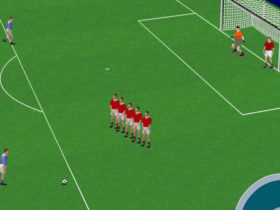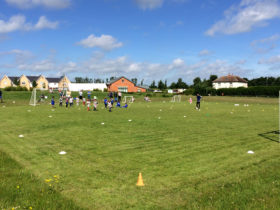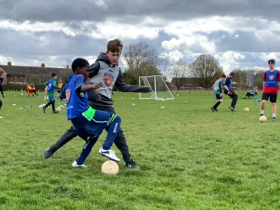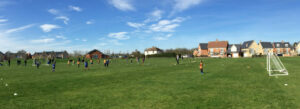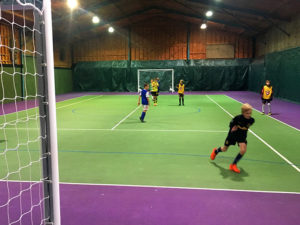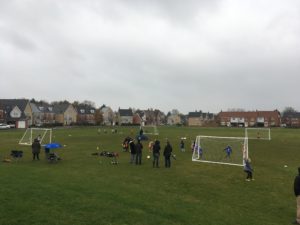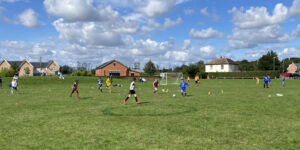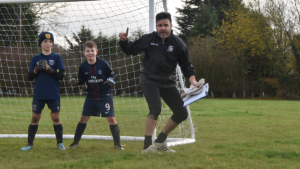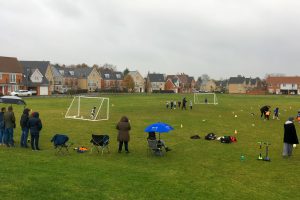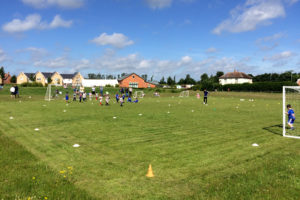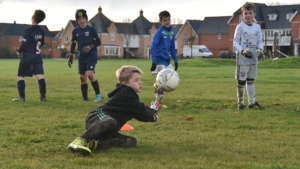I have embarked on the Level Two Certificate in Coaching Football with FA Learning and Suffolk FA this week, and throughout his time on the course will be sharing his experiences and hopefully encourage others to take their next steps into coaching…
Day Two – 3 April 2012
The first message we received on arrival in the classroom at Suffolk One on Tuesday was that our first assessed sessions, which are to cover the technique and skill factors of one of the topics from the course, are to be put back a day to Thursday to give us time to see all of the practical demonstrations.
I think for many there was a little sigh of relief that we had longer to soak up the course after a rammed-packed day one, but essentially this is why we are here, to learn about the drills to complete a full assessment later this year so we can do them well back at our clubs, so there’s no avoiding them.
As Keith Webb, our course tutor, reassuringly put it – we’re all in the same boat and that there’s no pressure. Even he, a man of 29 years of coaching experience occasionally has a below-par session, he says, so we shouldn’t expect to be perfect first time we coach a group of players to the Level Two standard. Ultimately, though, as candidates on the course, our aim is to learn and take on board enough information to earn the certificate. They aren’t given out just for attendance, and nor should they be. One of The FA’s goals is to produce more and better coaches, not just more coaches.
And looking around at the 18 faces on my course, you realise that football education in this country is highly respected around the world, so the courses need to stretch those involved. One of the group is from Ipswich originally, but now lives in Chicago and coaches five to eleven-year-old co-eds. He came back from the States this week specifically for this course and will return for the follow-on days. Another, ‘Chichi’, is from Norway, putting my 15-mile journey from Essex to shame.
Our first discussion for the day was Long-Term Player Development, LTPD, as we looked at the four corners – technical, psychological, physical and social – of players’ development in certain situations. We considered specifically at how the four corners of players of different ages may be affected during sessions, something that coaches, particularly of youth players, should understand.
Our other classroom topic was looking at what we as coaches should do if any players get injured, fall ill, or even go missing during a session, and what the emergency procedures would be. So we’re looking at more than just teaching people how to play football.
Out on the pitch is where the action happens, though, and after a warm-up (I volunteered to run this today), we looked at running with the ball and dribbling, followed by support play in the afternoon. I sat out of the dribbling session, just so I could observe the whole thing – and it’s pretty tiring taking part in all sessions too. But I was heavily involved in the running with the ball and support play sections.
Keith pulled me up during the running with the ball skill drill when I passed to one of my team mates who had made an angle in space on the right sideline of the training area. I instantly knew why. In a normal game of football, the pass would have been fine, but this was ‘running with the ball’ and in front of me was space to advance with the ball. So if you are coaching a certain topic, even if a player does something that would be acceptable in another situation, step in and try to correct the technique you are coaching at that time.
As a player (just), let alone a coach (hopefully soon), I’m thinking about the techniques I’m using and when to recognise the good things and the bad things of what I’m doing. Even after two days of fairly intense sessions, I try to remember back to when I’ve benefitted from being coached in this way. In 25 years of playing I’ve not had many opportunities like this so it’s exciting for me to think that if I can be successful on this course, hopefully it’ll give more players the chance to experience this kind of coaching.
Level Two Diary
Day One
If you are keen to get into coaching, whether that’s at Level Two, or any other of the courses on offer, click here to find out about local courses or here for the national course information. There is also a host of online courses available via The FA Learing website.



